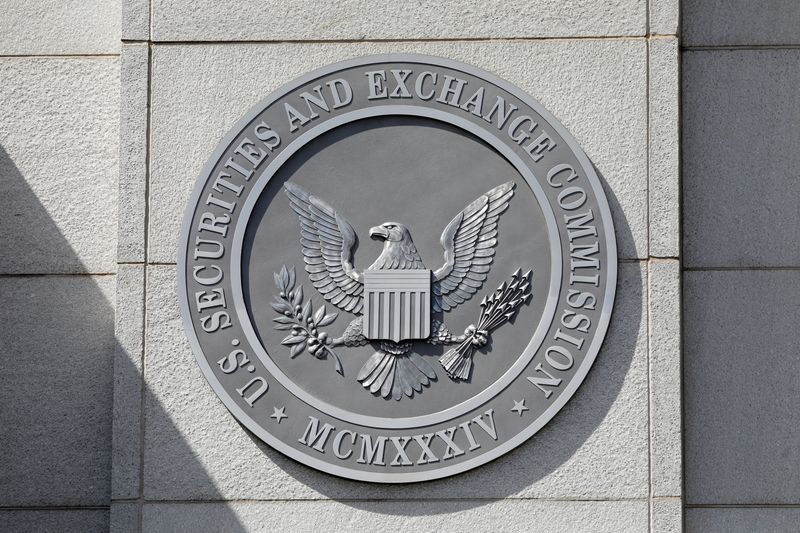By Douglas Gillison
(Reuters) -Wall Street's top regulator on Tuesday said it has tightened the timeline for investors to disclose 5% ownership stakes in companies they intend to control, shortening the allowed window from 10 calendar days to five business days.
The five-member U.S. Securities and Exchange Commission voted 4-1 to adopt the changes. Officials said this marked an update to half-century-old regulations that had not kept pace with advances in market technology.
"In our fast-paced markets, it shouldn't take 10 days for the public to learn about an attempt to change or influence control of a public company," SEC Chair Gary Gensler said in a statement.
The SEC proposal, first made public in 2022, initially angered some activist investors who claimed that having to step forward sooner could make it unprofitable to build the ownership positions they need for successful takeover campaigns.
The SEC is also currently seeking to force Tesla (NASDAQ:TSLA) CEO Elon Musk to give evidence in the agency's investigation of his takeover of the social media platform X, formerly known as Twitter, in which officials say Musk may have made such disclosures late.
As adopted, the rule also shortens the disclosure deadline for certain institutional investors to 45 days from the end of the quarter in which their ownership stake surpasses 5%. Previously, the deadline was 45 days from the end of the calendar year.
In advance of the announcement, SEC officials told reporters the final rule had been softened in important ways from the original proposal. It had initially called for investors seeking control of a company to reveal within five calendar days, rather than business days, that they have purchased 5% or more of a company's shares.
Additionally, the initial proposal would have required certain institutional investors -- meaning companies that make bulk investments on behalf of others such as pension funds -- to disclose stakes of 5% or more within five business days from a month's end, rather than 45 days from the end of the quarter.
The SEC announced the new rule changes after they had already been adopted rather than through a public meeting.

Republican Commissioner Hester Peirce, the lone objector, said the change effectively required investors who expend considerable effort and resources in researching stock purchases to tip off other investors who have not, weakening the incentive for markets to monitor corporate conduct.
"This 'modernization' effort might better be characterized as an insulation effort -- insulating corporate managers from scrutiny," Peirce said in a statement.